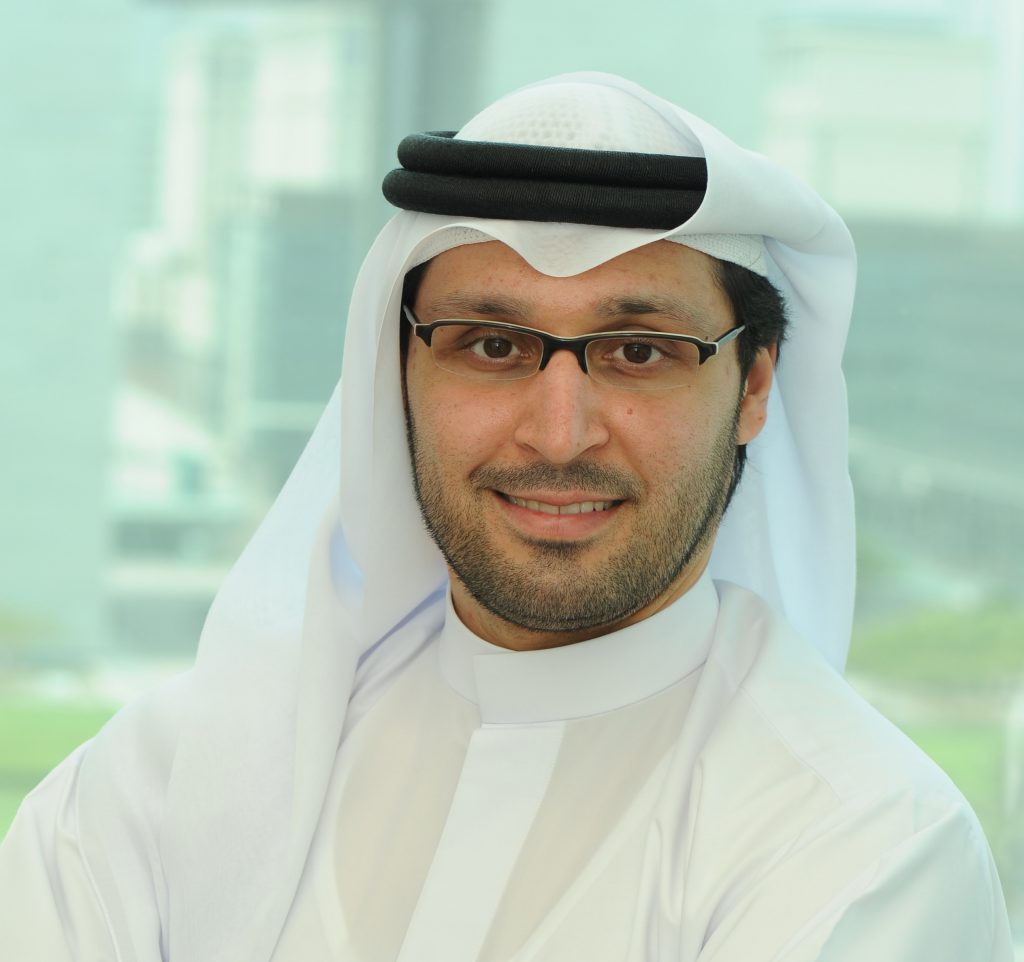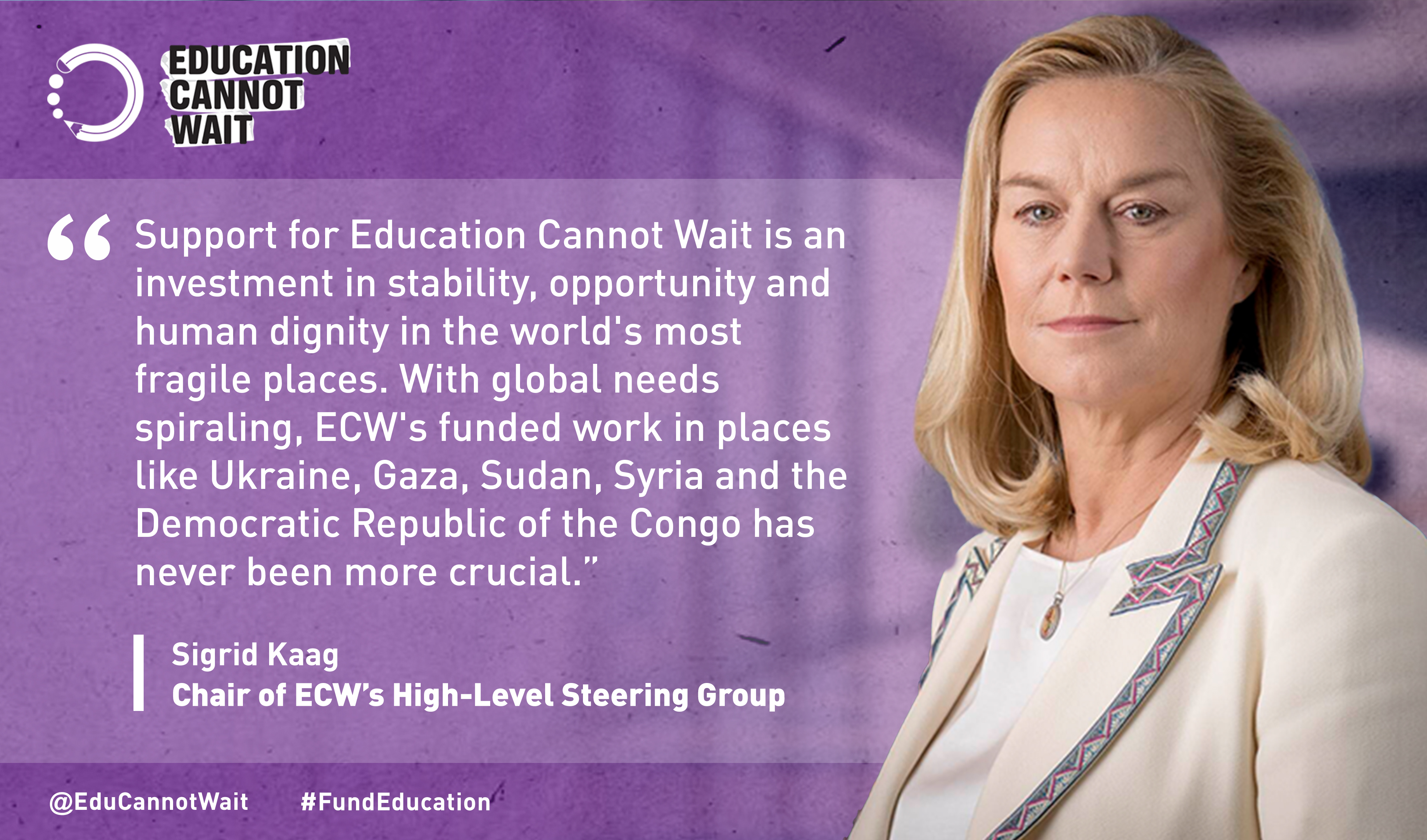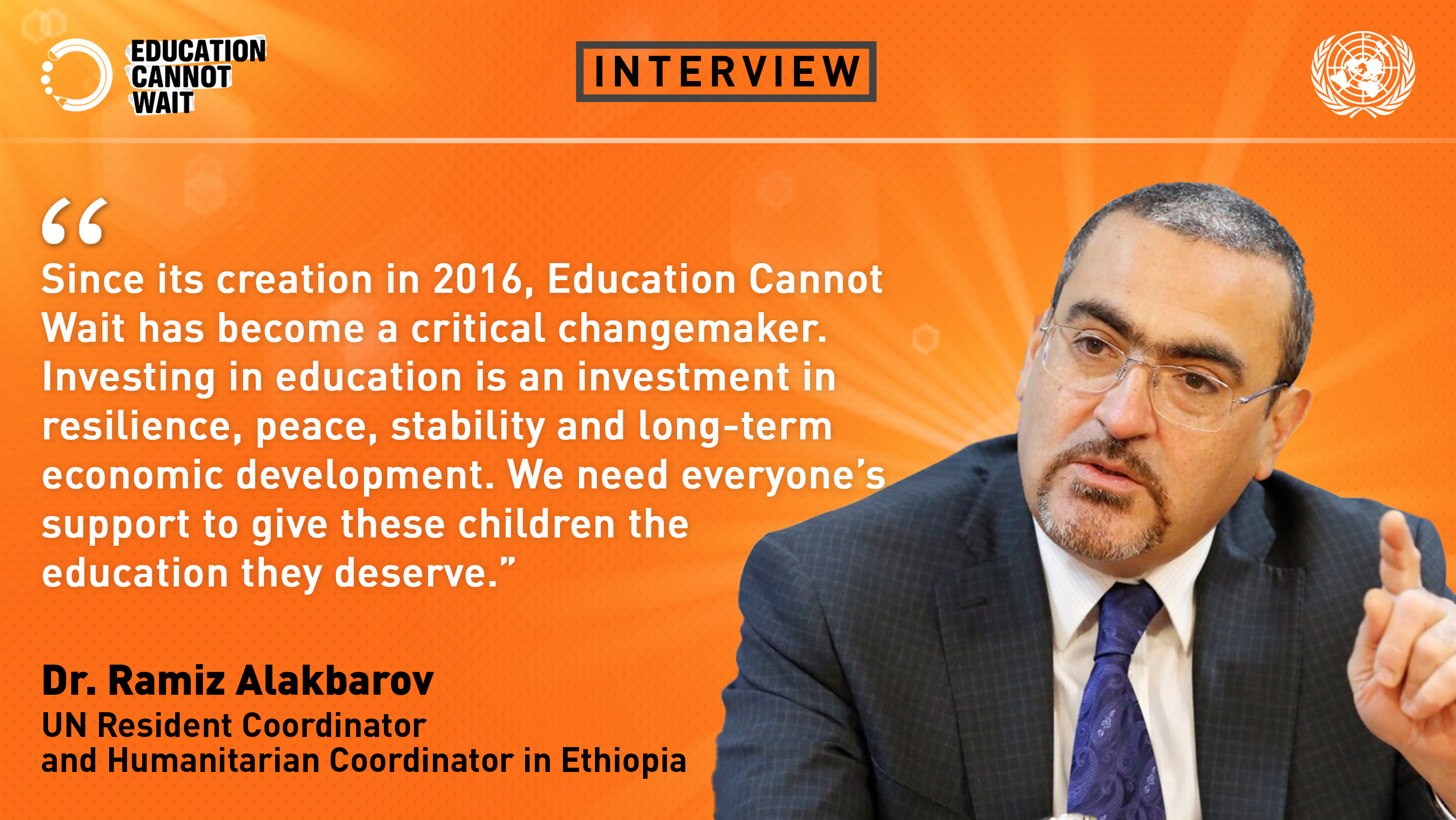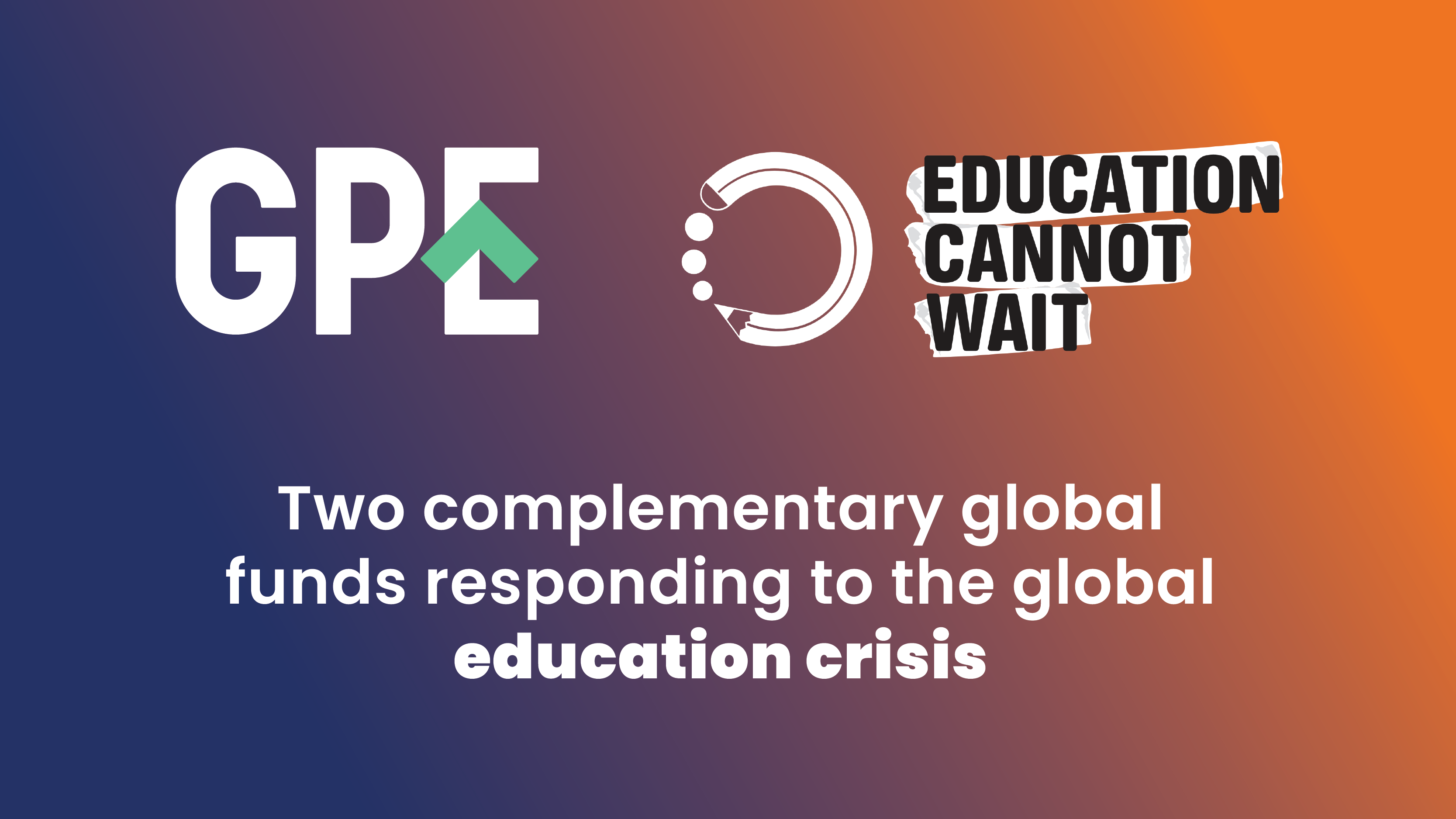Dubai Cares Committed to Continue Investing in Education in Emergencies
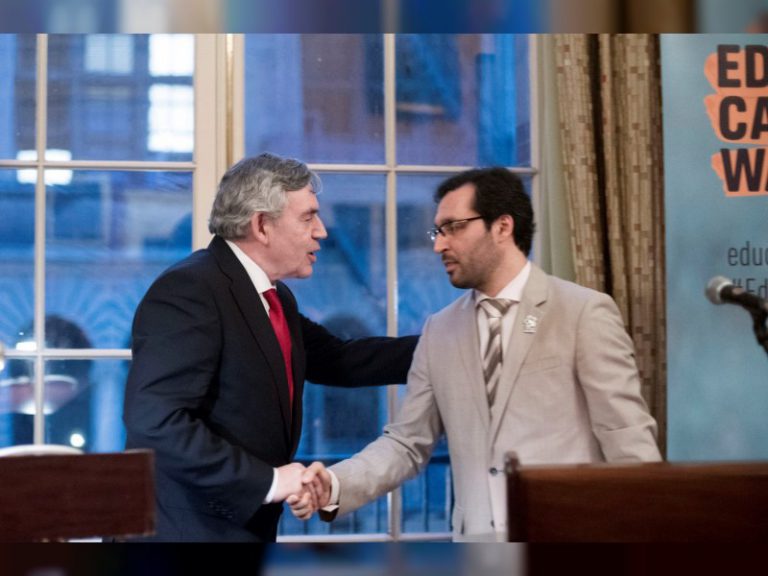
PARTNER VOICES Q&A
‘every child is born equal and education is every child’s birth right’
A founding partner of Education Cannot Wait, Dubai Cares remains committed to funding education in emergencies through its growing global portfolio of philanthropic investments. With a total US$6.8 million in current contributions over four years, the philanthropic organization is a key contributor to the Education Cannot Wait global resource mobilization efforts, which focus on working with the private and philanthropic sectors, bilateral and multilateral donors, United Nations and civil society organizations, and country-level partners. Dubai Cares was a first responder joining Education Cannot Wait to rapidly fund the Rohingya refugees when arriving in Cox’s Bazaar in Bangladesh in the early fall of 2017, providing an additional half-million US dollars to the Fund to allow for an immediate response to the emergency.
Through this broad coalition of stakeholders, Education Cannot Wait aims to mobilize US$1.8 billion by 2021 to reach 8.9 million children living in crisis and emergencies with quality education. Funding for education in emergencies has been historically low, but is slowly on the rise, with supporters like Dubai Cares helping to advocate for a global response to the glaring needs of children and youth caught in situations of crisis. In 2013, education in emergencies accounted for just 2 per cent of humanitarian aid. In 2018, it accounted for 4 per cent. Nevertheless, a major deficit remains and 75 million children living in crisis are still in need of educational support.
We connected with the CEO of Dubai Cares, Tariq Al Gurg, to learn more about the foundation’s key role in education in emergencies and why they’ve decided to dedicate a third of their resources to fill the gap that’s left millions of children behind worldwide. A leading global advocate for increased visibility and support for children left behind in fragile and crisis-affected countries, Al Gurg has been recognized by Irina Bokova, former director of UNESCO, for his role in transitioning Dubai Cares from a young philanthropic organization into a global leader in the international education arena.
Q. Dubai Cares is a founding partner of Education Cannot Wait, and a generous funder of the Fund’s efforts to deliver safe and reliable education to millions of children and youth living in emergencies and protracted crisis. As a foundation, can you tell us why Dubai Cares decided to invest its energies, resources and talents into the new global Fund?
A. As a philanthropic organization with no operational presence on the ground and limited direct access to populations in need in emergency and protracted crisis contexts, it is important for us that we support the partners best placed in each context to help deliver education to those most in need. The establishment of Education Cannot Wait as a new global fund for education in emergencies allows foundations like us to support a mechanism that enables improved delivery of education to children and young people displaced by conflicts, epidemics and natural disasters through a coordinated and collaborative effort that minimizes transaction costs and maximizes impact.
As a member of the High-Level Steering Group for Education Cannot Wait, Dubai Cares contributes to leveraging additional finance and catalyzing new approaches to funding and innovation to deliver education in emergencies and protracted crises. As a foundation representative, Dubai Cares aims to highlight the role foundations can play in supporting the global education in emergencies ecosystem and bridge the gap between traditional humanitarian funding mechanisms and private and philanthropic donors.
By supporting the secretariat costs of Education Cannot Wait, Dubai Cares remains committed towards increasing its effort to support the delivery of education in emergencies with the hope of reaching all crisis-affected children and youth with safe, free and quality education.
Q. Why is access to education for children living in crisis and conflict important for the economic future of our world in general? What do you think is the role of foundations and philanthropy in supporting quality learning for children and youth in crisis settings?
A. Never before in humankind’s history has the urgency for education in emergencies been more important. The positive impact of education on societies and future generations is undeniable. Education in emergencies and protracted crises has the power to provide physical, psychosocial, and cognitive protection that can sustain and save children’s lives. Also, education in emergencies can help child soldiers, internally displaced persons, refugees and all those affected by emergencies to reintegrate back into society, and overcome the negative effects that emergencies can have on people. Schools can provide safe spaces for children to build friendships, play and learn. In addition, there is sufficient empirical evidence to prove the positive economic impact of education, as for every extra year a refugee child spends in school, their future income increases by 3 per cent.
Foundations and philanthropic organizations are not always best placed to fund emergency response interventions, whether in education or other sectors. Financing for education in emergencies must be quick. It must be available for immediate disbursement and be integrated into the existing humanitarian financing mechanisms; long-term and continuous; flexible and allocated to unconventional and traditional solutions; equitable and reach all children; and finally be directed to new and necessary evidence-based interventions. The mandates and annual funding cycles of foundations are often restrictive and they rarely have a detailed overview of who is best placed to respond in a particular emergency due to lack of direct access on the ground. Nonetheless, foundations and philanthropic organizations play a critical role in supporting the funding and coordination mechanisms in the larger education in emergencies ecosystem. Philanthropic funding for evidence generation, capacity building and global goods in the sector allows for targeted, measurable and high-impact investments that enable the entire education in emergencies system to deliver in a more coordinated and effective way. This is exactly why Dubai Cares supports the ECW secretariat.
Q. How can Dubai Cares, Education Cannot Wait and our partners work to achieve the Sustainable Development Goals, and why is universal and inclusive access to education important?’
A. Dubai Cares is playing a key role in helping achieve the United Nations Sustainable Development Goals (SDGs), particularly goal number 4, which aims to ensure inclusive and quality education for all and promote lifelong learning by 2030, by supporting programmes in early childhood development, access to quality primary and secondary education, technical and vocational education and training for youth, as well as a particular focus on education in emergencies and protracted crises.
Every child is born equal and education is every child’s birth right; it is unacceptable that children, especially those living in developing countries, have to live in unhygienic conditions, go to school hungry, suffer from diseases and illnesses, work at a young age to support the family, and have little or no access to education, among others. Education equips children and young people with the capacities and qualities necessary to address the challenges that humanity is facing. Education builds sustainable and resilient societies and contributes to the achievement of the other SDGs. Education should be inclusive and universal in its principles and local in its impact.
Foundations along with both governments and the private sector can play a critical role in achieving the SDGs by sharing information, resources, and capabilities. Therefore, collaboration is key to fulfill the goals; it’s not the sole responsibility of one entity – we should altogether join our efforts for the common good. Our strategic partnership with Education Cannot Wait is testimony of the power of partnership to make a lasting change for the millions of children out of school due to conflict or crisis.
Q. How can we provide better access to education for refugees and why is this important?
Refugees face a particular situation with respect to being denied access to education. They are residents in a country different from their own, and have therefore limited, if any, access to their own country’s education system. Education for refugees needs to take place within accountable systems that provide certification to ensure valuable and relevant learning.
In addition, an emergency response should take into account physical protection through measures that include strengthening school infrastructure and providing a safe haven for learning. Moreover, teachers involved in the education of refugees need adequate training and regular pay. Emergency education supplies and materials are also needed to meet the cognitive, psychosocial and developmental needs of children in emergencies.
With all of the above, funding remains the most important aspect of support to ensure that every crisis-affected child and young person is in school and learning. This requires the coming together of grassroots activists and decision-makers from the corridors of power.
Q. Girls in crisis face increased risk of being left behind. How can we work to achieve more equitable and safe educational outcomes for girls and adolescent girls?
A. In some parts of the world, girls are still denied their fundamental right to education for different reasons, not to mention when girls are affected by emergencies. Girls are especially at risk, and are 2.5 times more likely to be out of school in countries affected by conflict than boys.
In order to help girls affected by emergencies, we need to provide girls with the necessary skills and tools to cope within or break the cycle of violence and contribute to their communities’ recovery. In particular, girls need education to take control of their own lives. An educated girl is better protected against gender-based risks, such as early marriage and pregnancy, abuse and exploitation, and also better prepared to be able to make the right choices for herself and her society. In addition, it is crucial to educate boys and men about gender equality by engaging them in promoting girls’ and women’s rights.
Q. Education Cannot Wait supports education responses in many crisis areas in Africa, the Middle East and Asia, including several Arab States. Why is it important to support education responses in these regions? How can it contribute to increasing security and prosperity in these regions?
A. Despite the growing number of children caught in conflict and natural disasters, statistics show only 2% of overall humanitarian aid is spent on education. This makes the needs of children living in fragile states an urgent priority for Dubai Cares.
When Syrian refugee children are forced to leave their homes due to the ongoing conflict or Nepalese children are displaced because of an earthquake or boys and girls in Sierra Leone are quarantined because of the Ebola outbreak, education is one of the first casualties and one of the last services to be restored.
Education in emergencies provides stability and security to refugee children, when everything else around them has collapsed. The classroom has proven to be a peaceful environment for children affected by emergencies. In addition, children gain life-saving skills and acquire critical information on health and safety that they in turn are able to share with their families and communities. Education in emergencies also reduces the psycho-social impact of trauma and displacement. It is also the first line of response for promoting the recovery and wellbeing of children and adolescents.
Q. What is the strategic value-ad of your partnership with Education Cannot Wait?
A. Education Cannot Wait is a first-of-its-kind fund that brings together public and private partners determined to work together, identify creative and collaborative solutions for Education in emergencies and mobilize the funding required to deploy rapid-response and – more importantly – multi-year programmes relevant to each specific crisis context.
Our involvement with Education Cannot Wait opens doors for us to connect directly with implementers, thus allowing us to receive first-hand and real-time information and reports on emergency situations and the required/recommended educational interventions, which we as a foundation would not normally have direct access to. ECW also represents a collaborative way of working that increases coordination and brings together the best minds from around the world to exchange opinions and ideas, broaden knowledge, share best practices, highlight challenges and formulate solutions.
This is specifically of importance to Dubai Cares as it connects us to businesspeople, leaders, employers, innovators, humanitarians and philanthropists who play a critical role in tackling Education in emergencies, from HQ level to the very closest level in the affected countries.
Q. Anything you would like to add?
A. More collaboration at country and thematic levels is key to support harmonized and effective coordination, joint planning, and response in Education in Emergencies programming. Due to the significant role education plays in the well-being of societies, it is of paramount importance that sufficient funding is allocated to this key pillar for the healthy advancement of civilization.
